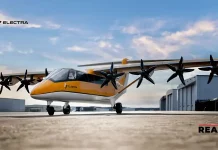Agriculture is the fundamental activity that provides the food we need for everyone. To increase food production and keep crops healthy, farmers are using advanced technologies. One such technology, precision farming, is taking the stage with its remarkable capabilities. This technology offers impressive strategies, ensuring the production of high-quality food for a growing population.
So, let’s dive into modern agriculture and learn how it is helping to meet the increasing demand for food sustainably and efficiently.
What is Precision Farming?
Precision farming, also known as precision agriculture, is a concept of farming management that involves observing, analyzing, and responding to inter- and intra-field variability in harvests. It uses information technology (IT) to ensure that crops and soil receive the required nutrition for optimum health and productivity, leading to profitability, sustainability, and environmental protection.
The adoption of precision agriculture has risen in recent years. According to Extrapolate, the global precision farming market is growing rapidly and is likely to be valued at $17.67 billion by 2028.
How Does Precision Farming Work?
Precision agriculture technology is mainly used to enhance crop health and increase its yield. In this way, agricultural control centers integrate various advanced devices and technologies, such as sensors, satellite imagery, GPS, and specialized software. They are primarily employed to provide farmers with the ability to identify fields that require treatment. They also help determine the optimum amount of water, fertilizer, and pesticides to apply to crops. This helps farmers avoid waste and ensure efficient use of resources.
Along with this, precision farm parts and machinery play a crucial role in promoting optimal agriculture practices. The machines include beaters, crop cutters, choppers, blades, lifters, and concaves. These parts together contribute to the overall efficiency and effectiveness of the harvest.
7 Pivotal Advantages of Precision Farming
Precision agriculture offers several benefits that enhance farm operations and overall productivity. Some of the key advantages include:
- Costs Saving: This agriculture approach allows for accurate adjustment of fertilizer, herbicide, or seed rates in areas where it may not be economical to utilize, leading to reduced expenses.
- Increased Profitability: By understanding farm nutrient levels and soil types across the farm, precision agriculture contributes to increased profitability.
- Better Harvestability: This farming technology provides the ability to understand and manage field irregularities, leading to better harvestability.
- Environmental Benefits: Precision farming technology aims to improve agricultural yield while reducing potential environmental risks. This includes monitoring soil and plant physicochemical parameters. This helps achieve more sustainable food production.
- Resource Management: Precision agriculture enables farmers to make important resource management decisions on-site and in real-time, leading to more efficient use of resources.
- Improved Crop Health: This farming technique helps in responding to variability within fields, improving overall crop health, and increasing yields.
- Virtual Field Visibility: Organizations such as farmer cooperatives, input retailers, seed producers, and crop insurance companies benefit from the virtual field visibility and digital reports provided by this farming method.
Top Trends in Precision Farming in 2024
Recent trends in precision agriculture reflect the ongoing evolution of farming practices, driven by technological advancements. Below are some key trends in this revolutionary field:
● Crop Sensors
Crop sensors are emerging as a critical component of precision farming in 2024. They provide farmers with efficient and precise ways to manage inputs such as fertilizer. These sensors enable agricultural robots to autonomously navigate fields, monitor crops, and perform tasks such as planting, spraying, and harvesting with precision and accuracy.
Some advanced crop sensors, such as the GreenSeeker crop sensor, measure the health of crops by calculating the Normalized Differential Vegetation Index (NDVI). This information is then used to determine the precise amount of fertilizer that should be applied to various areas of a field, resulting in a more efficient use of inputs.
● Digital Agriculture
Digital agriculture represents the new frontier of precision farming technology in 2024. It involves the allocation, use, and collection of data to boost farmer operations, support farming activities, and assist in food chain strategies. Digital technologies help intelligent machines used in precision farming optimize their efficiency, with the aim of saving costs, time, labor, and inputs within sustainable farming systems.
One such company, Blue River Technology, has developed robots that are equipped with cameras and artificial intelligence. These robots can identify and manage weeds in real time, contributing to more efficient and sustainable farming practices. This approach allows for the automation of weed management, highlighting noteworthy advancements in precision farming.
● UAS Technologies
In 2024, unmanned aerial systems (UAS)-derived information is proving vital for the agricultural revolution by providing optimized inputs such as water and fertilizer to enhance productivity, quality, and yield. This technology can be utilized for smart spraying tasks, allowing for precise and targeted application of pesticides or fertilizers based on real-time crop and soil conditions.
In this field, PrecisionHawk, a renowned company provides drone and UAV remote sensing and data processing services specifically designed for the agriculture industry. These valuable tools and applications help farmers optimize their operations and maximize crop yields.
To Conclude
Precision farming is advancing rapidly driven by innovative technologies such as wireless communication and crop sensors. This technology offers various benefits, such as resource management, cost savings over fertilizers, and better crop health and yield. These advancements are empowering farmers to optimize resource usage, enhance productivity, and minimize environmental impact.
With the evolution of digital technologies, UAS, and the continuous refinement of crop sensors, precision agriculture is poised to play a pivotal role in meeting the global demand for sustainable and efficient agricultural practices. As these technologies continue to evolve, addressing food security, environmental sustainability, and the economic viability of agricultural operations becomes easier.
Browse More Posts:-
Business Process Outsourcing Market
Forklift Market
Higher Education Market
Hemp Fiber Market




